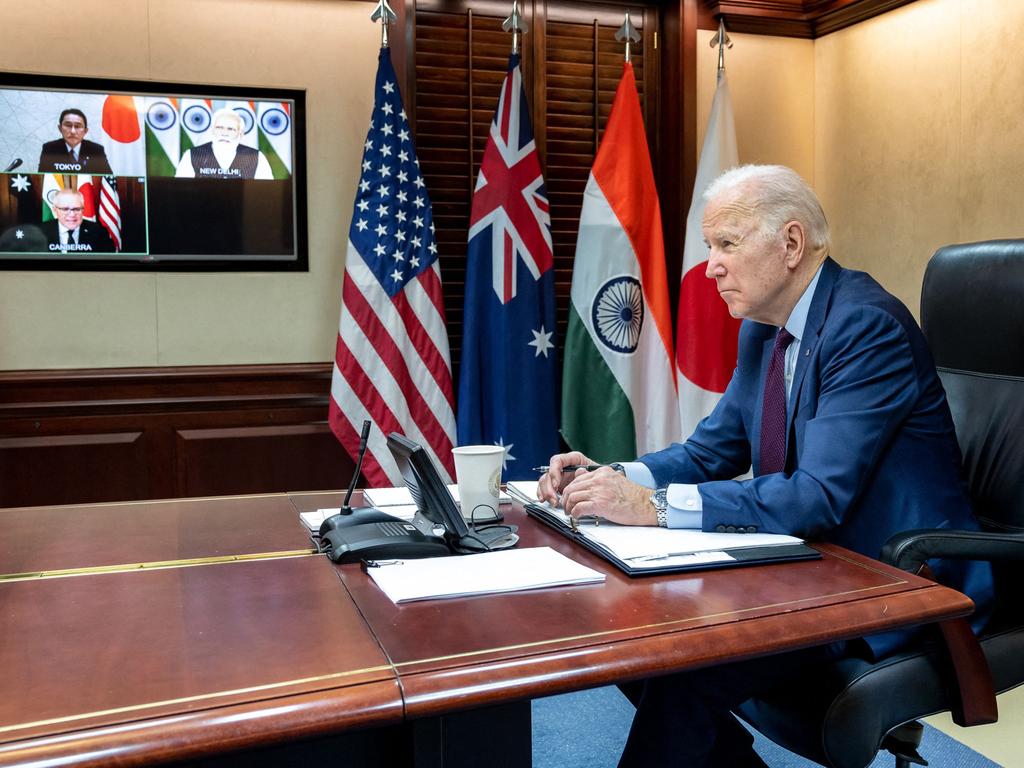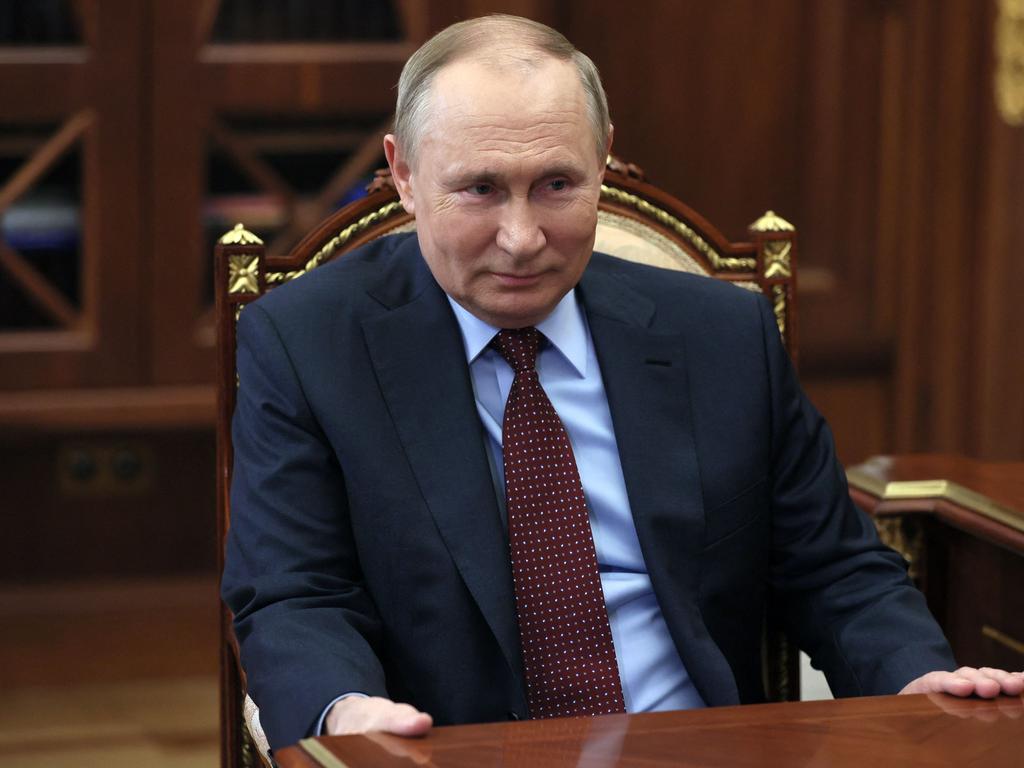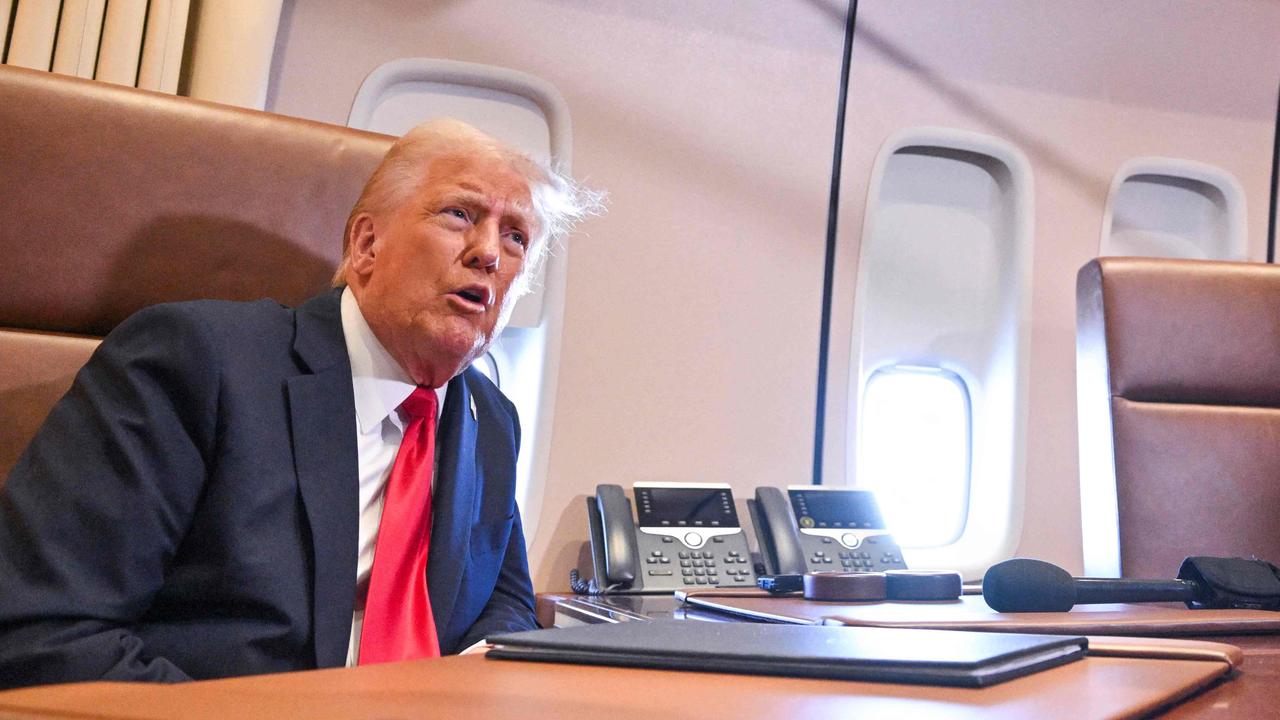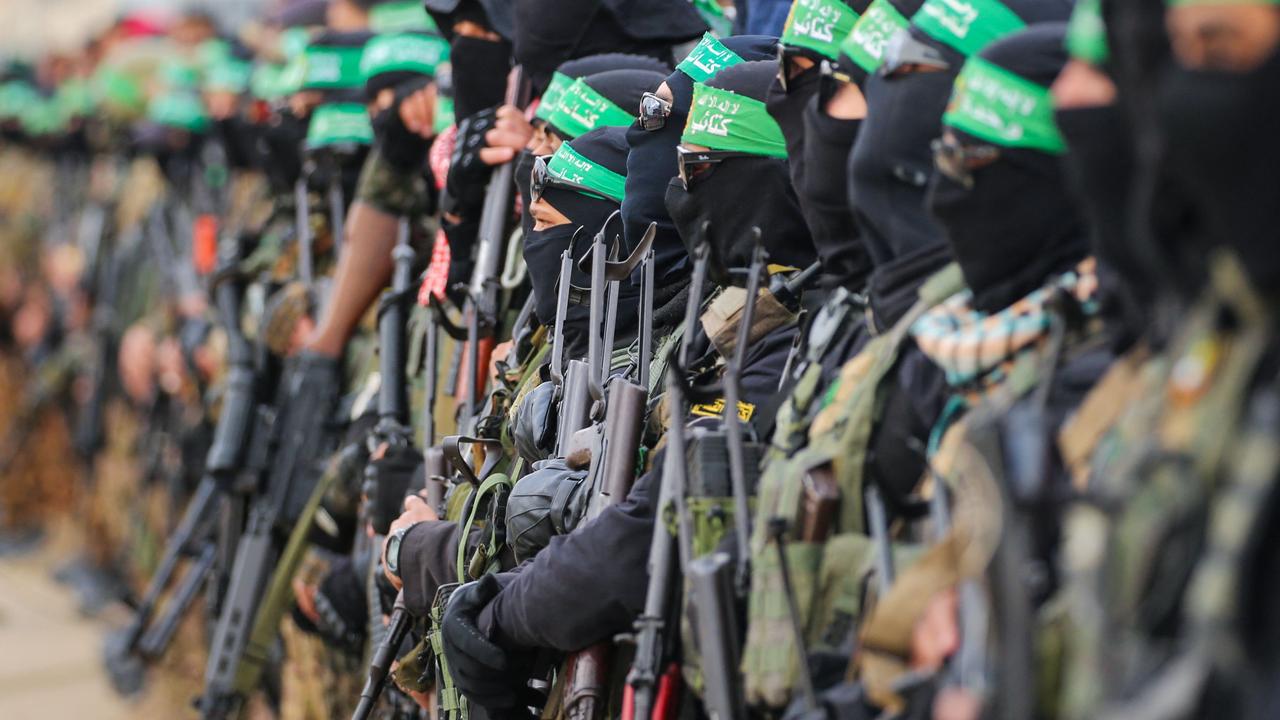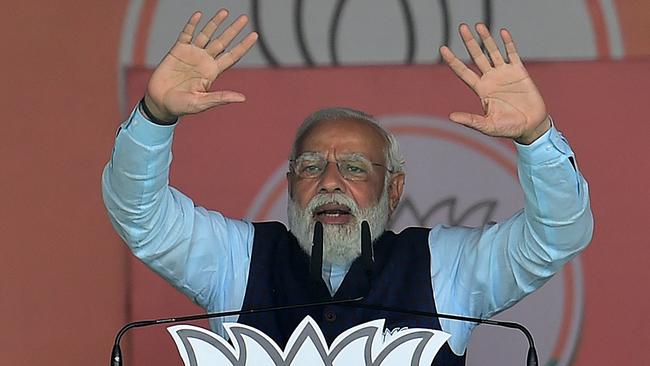
India’s position on the Russian invasion of Ukraine has been perplexing to its Quad partners – the US, Japan and Australia.
India is both the swing nation in the Quad and a good part of the raison d’etre of the Quad’s existence. The government of Narendra Modi has not remotely supported Moscow’s shocking aggression against Ukraine, but nor has it condemned it, as most other nations have.
New Delhi abstained from a UN Security Council resolution condemning Russia’s actions. This resolution was vetoed by Russia, which is a permanent member of the UN Security Council.
New Delhi then also abstained from a UN General Assembly resolution, which was based on the vetoed Security Council resolution. India did not vote with Russia – only Belarus, Syria, North Korea and Eritrea did that – but nor did it condemn Russia’s actions publicly.
And in snap Quad talks overnight, called by Joe Biden, the leaders of Australia, US, Japan and India, failed to agree on condemning Russia’s invasion, with New Delhi hesitant to censure Moscow.
In an announcement that would reassure a Taiwan fearful of China, the White House said the four nations were “committed” to ensuring “the sovereignty and territorial integrity of all states” were “respected” and nations were “free from military, economic, and political coercion”.
Their short statement suggests three of the leaders had failed to convince India to shift its stance.
Despite the warming of US-India ties over the past 15 years, New Delhi still gets an enormous amount of its hi-tech military gear from Russia. It has, for example, leased a nuclear-powered submarine from Russia as it develops the capability to produce its own nuclear-powered sub.
As the recent AUKUS agreement demonstrates, for a nation to share nuclear submarine propulsion technology indicates a very high degree of military intimacy.
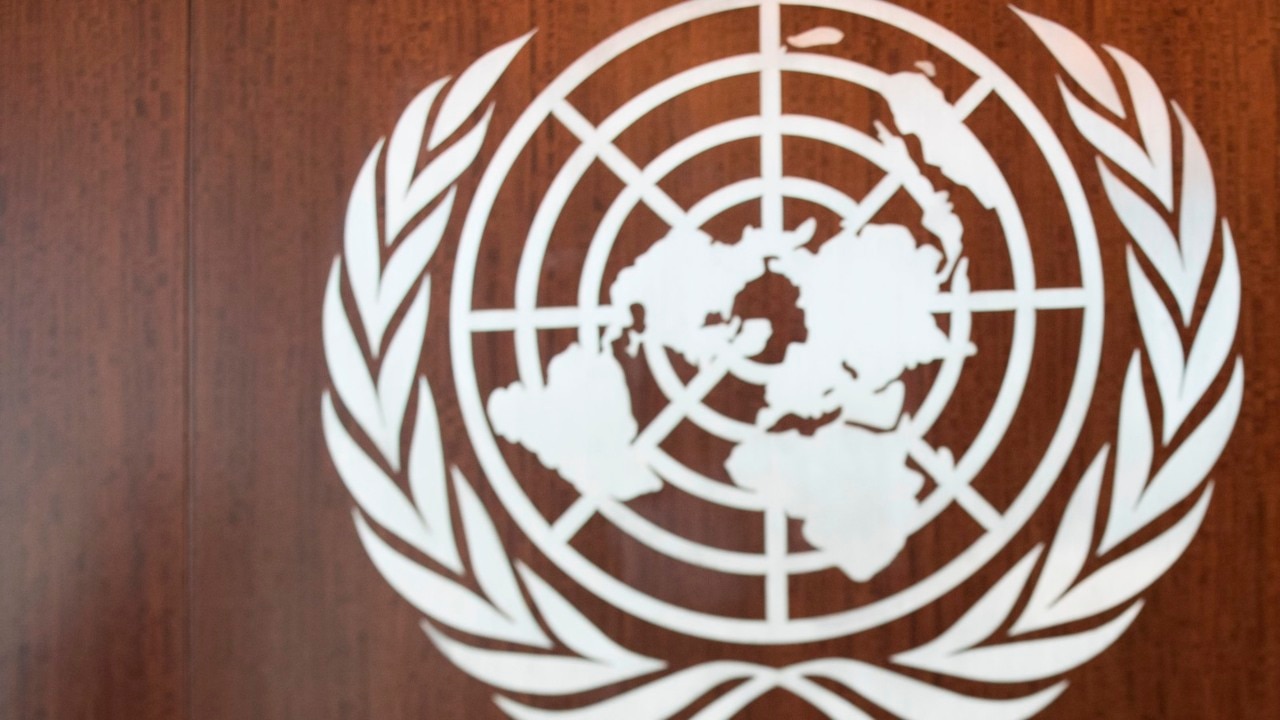
New Delhi and Moscow have a very long-standing relationship going back right through the Cold War. Although India is unequivocally a democracy, and shares democratic culture with other Quad members, its strategic class has always held that Washington forced this closeness with Moscow on India by its historically ill-advised tilt to Pakistan.
The political and military investment in Pakistan was pretty much a disaster for the Americans and New Delhi has more than half a case to make for itself here.
But today’s strategic realities are very different.
The Biden administration has a kind of operating doctrine that holds that much of the 21st century will be determined by the orientation of key “swing” nations. Chief among the swingers is India.
Its relationship with Moscow can be compared with Israel’s. Not only does Israel use Russian hi-tech stuff, it has a long relationship because of the Russian Jews who migrated to Israel.
Most importantly, Jerusalem needs Moscow’s acquiescence in its continued bombing of Iranian targets in Syria.
For all that, Israel has formally condemned the invasion and did vote against Russia in the UN General Assembly.
But Israel is a much closer ally of the US.
It is in no one’s interest in the Quad to hem India in or try to bully it. The fact of a Quad leaders’ meeting in the midst of a Russia-Ukraine war demonstrates the Quad’s relevance. But internal Quad diplomacy can be a pretty tricky business.


